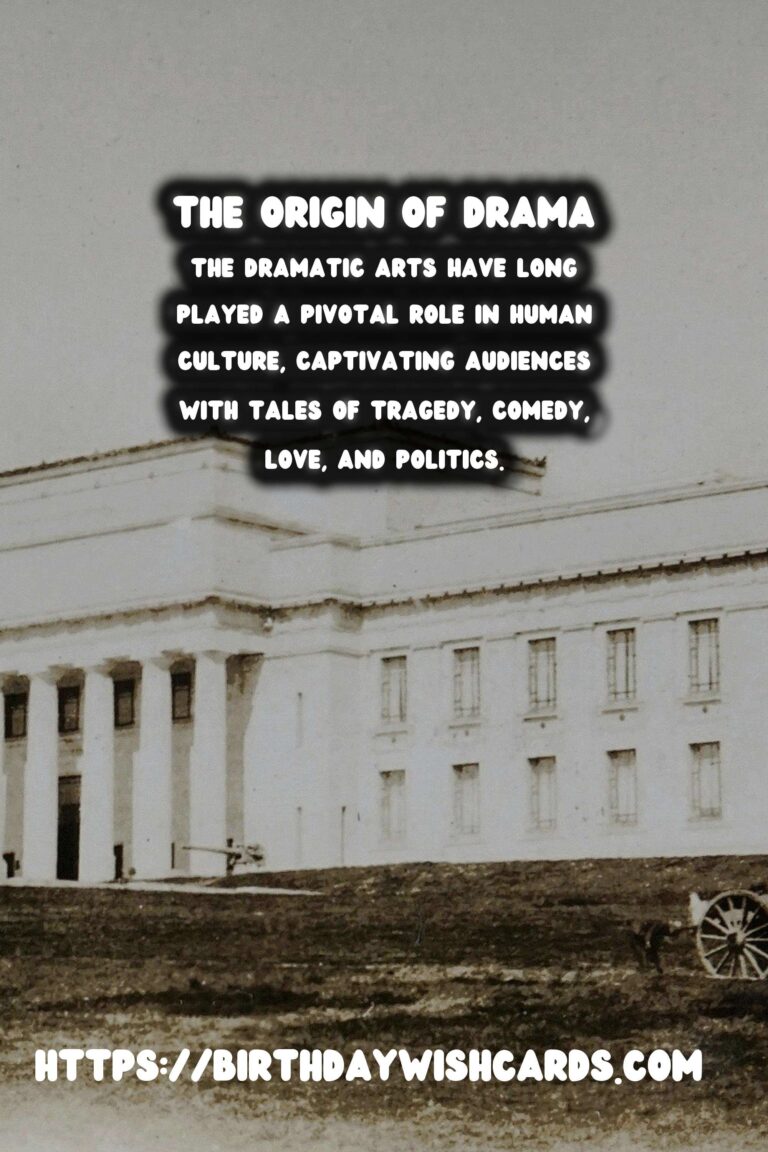
The dramatic arts have long played a pivotal role in human culture, captivating audiences with tales of tragedy, comedy, love, and politics. From the ancient amphitheaters of Greece to the bustling theaters of modern-day cities, drama has evolved but its core remains deeply rooted in its birthplace.
A Glimpse into the Origins
Drama as we know it today has its origins in ancient Greece. The earliest forms of drama emerged around the 6th century BCE, during religious festivals held in honor of Dionysus, the god of wine and fertility. These festivals featured performances of dithyrambs and evolved into more structured forms known as tragedies and comedies.
Thespis, a figure of paramount importance in the history of drama, is credited with transforming these ritualistic performances into the nascent form of theater by introducing the first actor, or protagonist, who interacted with the chorus. Thus, the tradition we now call drama was born.
The Essence of Greek Drama
Greek drama typically focused on narratives that reflected the complex human experience and societal norms. Tragedy, in particular, delved into themes of fate, hubris, and the gods’ influence over mortals. Works of playwrights like Aeschylus, Sophocles, and Euripides explored these themes through masterful storytelling and character development.
Comedy, on the other hand, offered a reprieve from these heavy themes, often satirizing political situations, cultural norms, and prominent figures, providing the audience with both entertainment and critical reflection.
The Structure and Elements of Ancient Plays
Early performances were quite different from the productions seen today. They were performed in open-air theaters, utilizing the natural landscape for acoustics and scenery. The use of masks was prevalent, allowing actors to switch between roles swiftly and effectively. This characteristic simplicity enhanced the dramatic effect and engaged the audience’s imagination.
The chorus, a central component of Greek drama, interjected with commentary and reflections on the unfolding narrative. Through song, dance, and recitation, the chorus provided a collective voice that expressed communal concerns and emotions, bridging the storyline with the audience’s experience.
The Lasting Impact of Drama
Despite its ancient origins, the influence of Greek drama persists in contemporary culture. The fundamental structures and themes of ancient plays have shaped modern storytelling across various media, including literature, film, and television. The concept of the tragic hero, a staple of Greek drama, continues to resonate through characters in contemporary narratives who face moral dilemmas and existential crises.
Modern theater owes much to the dramatic innovations of the ancient Greeks. The architectural design of theaters, the use of dialogue, and the art of theatrical performance itself find their roots in these early performative traditions. The endurance of these practices and narratives underscores the timelessness of the human condition they portray.
Conclusion: The Everlasting Legacy of Drama
The cradle of drama in Ancient Greece established a cultural cornerstone that offers insights beyond mere entertainment. It speaks to the universal nature of storytelling as a reflection of humanity’s virtues, vices, dreams, and challenges. As drama continues to captivate and convey powerful messages, its birthplace remains a testament to its enduring power and significance.
Today, as we witness new forms of expression emerging, the historical significance of the birthplace of drama reminds us of the roots from which these art forms have sprouted. From the grand open-air theaters of ancient Greece to the black-box theaters of today, the echoes of these ancient stories continue to reverberate in the heart of human culture.
The dramatic arts have long played a pivotal role in human culture, captivating audiences with tales of tragedy, comedy, love, and politics. Drama as we know it today has its origins in ancient Greece. 

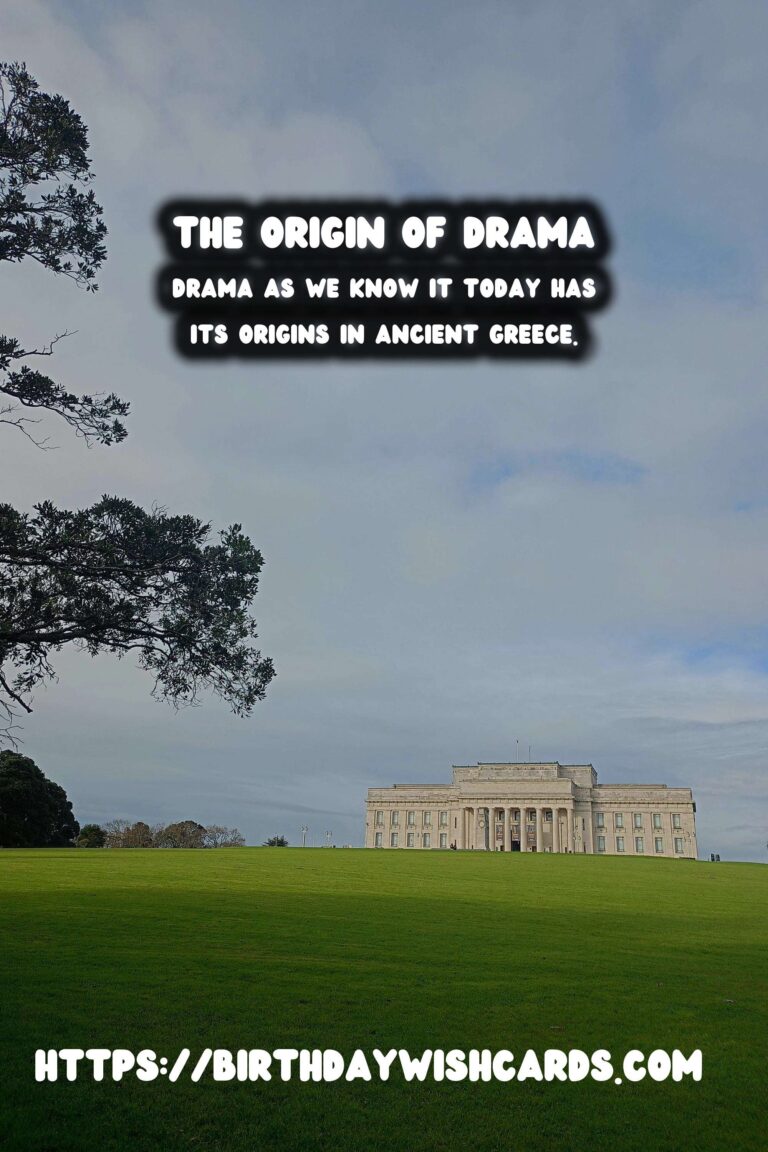
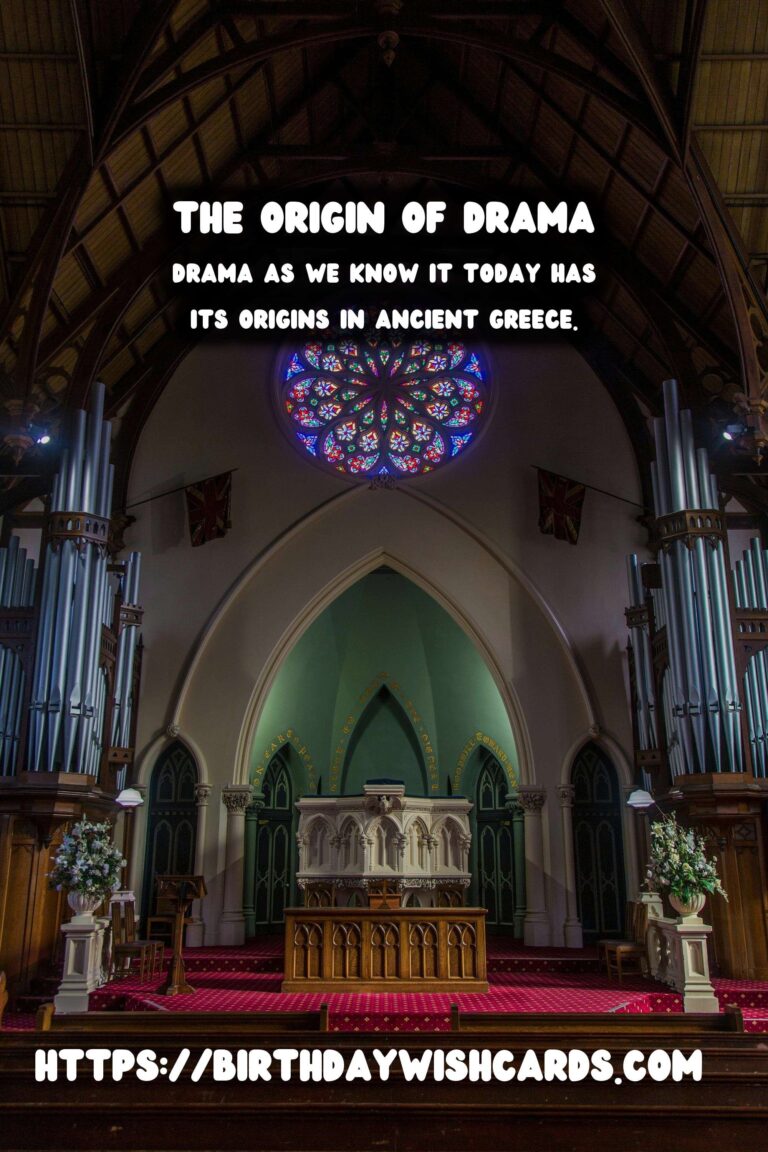
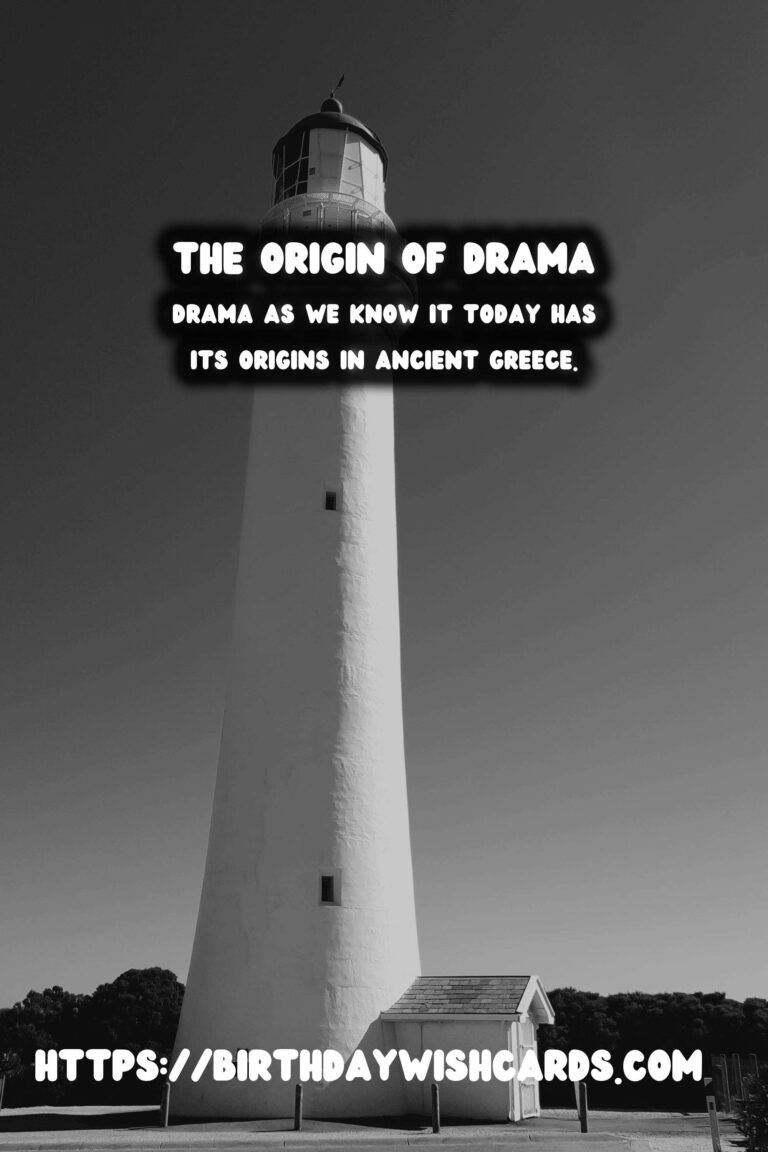


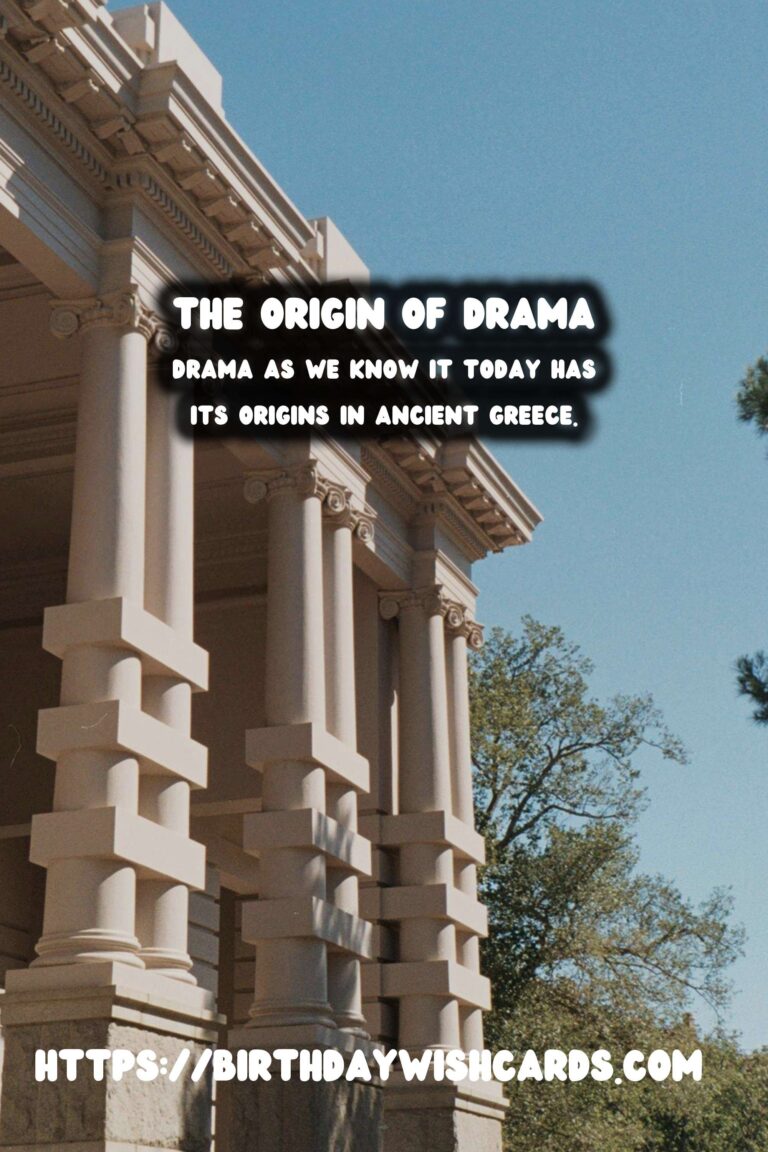
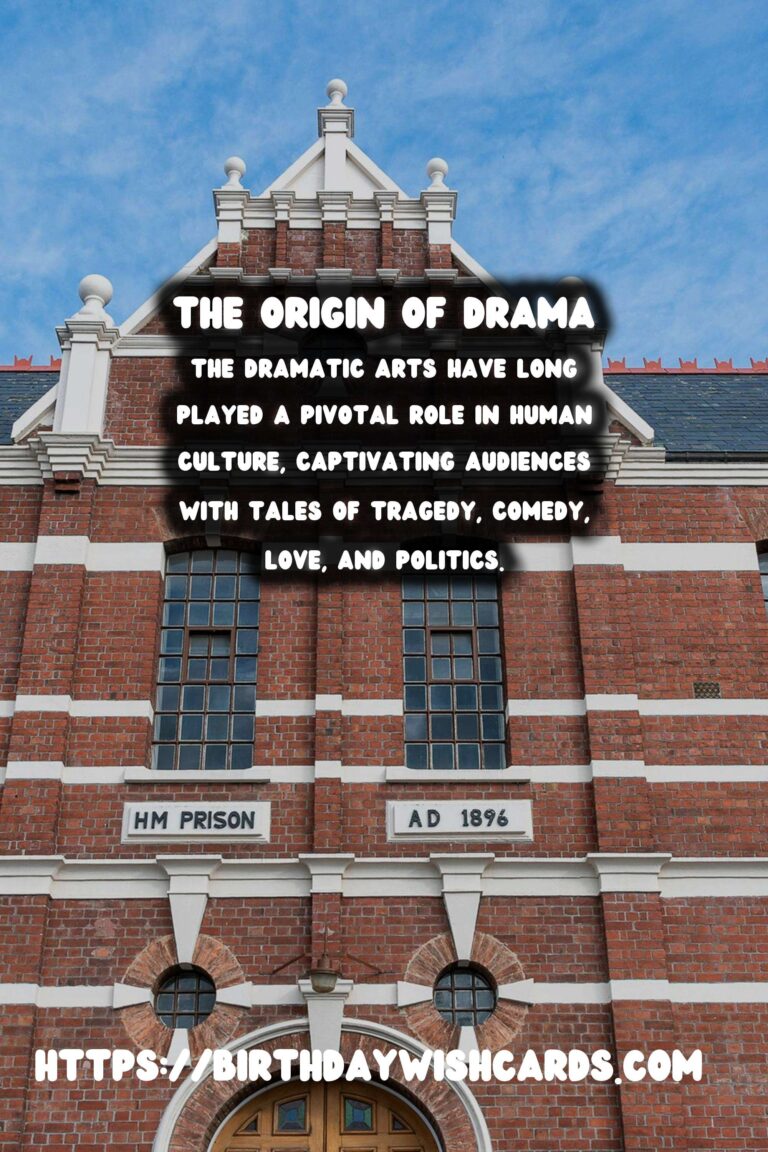

#GreekDrama #TheaterHistory




